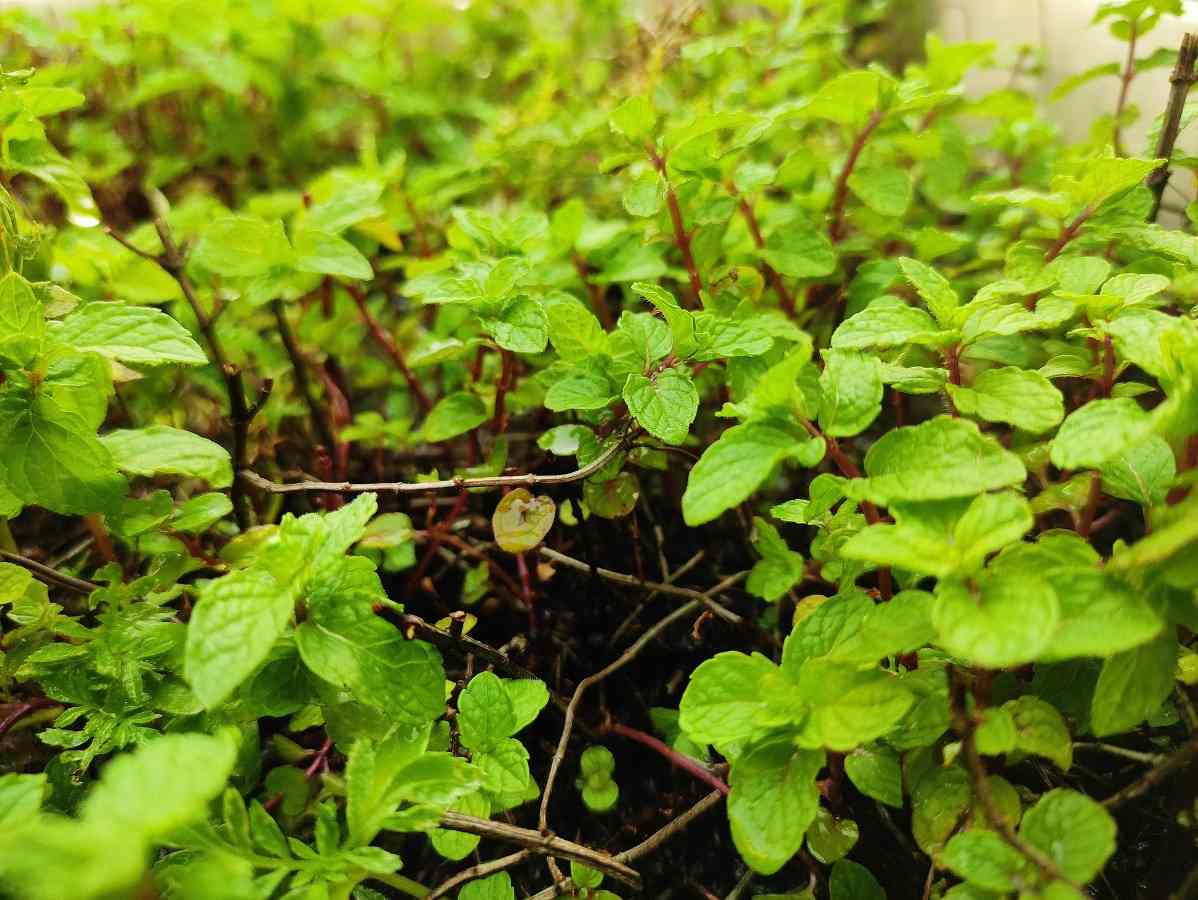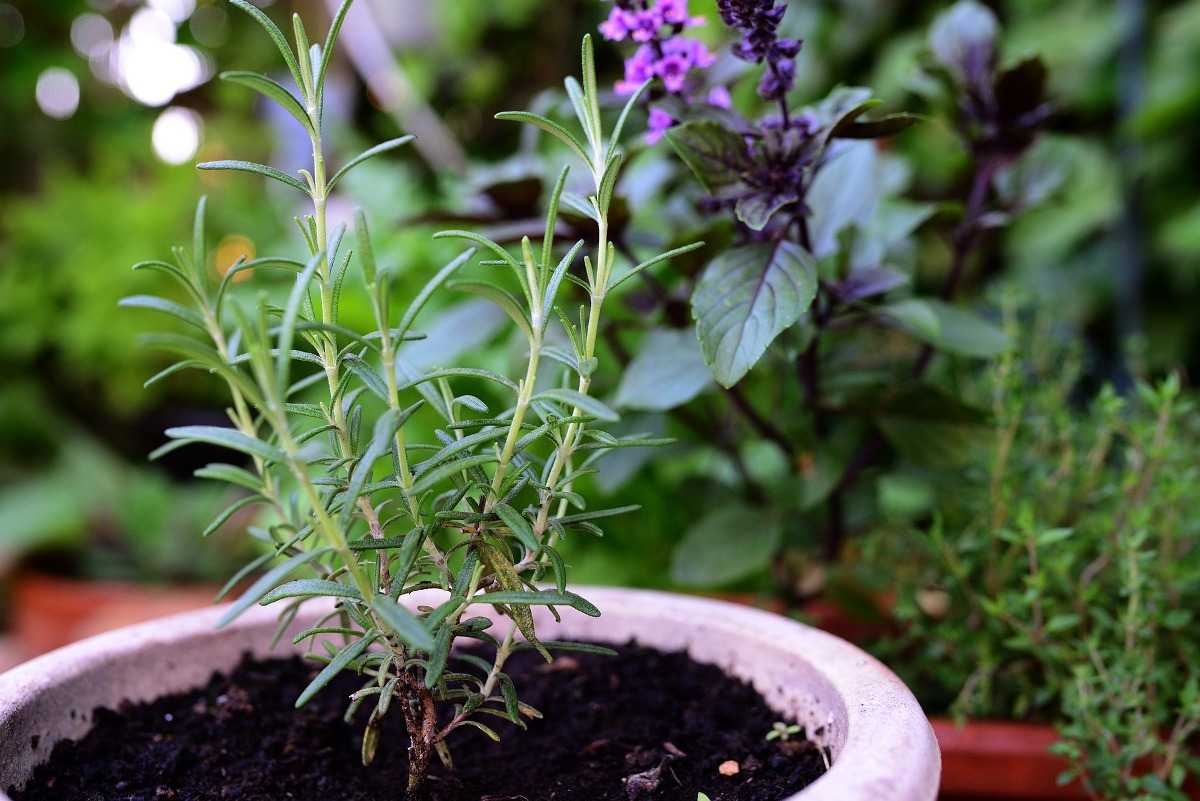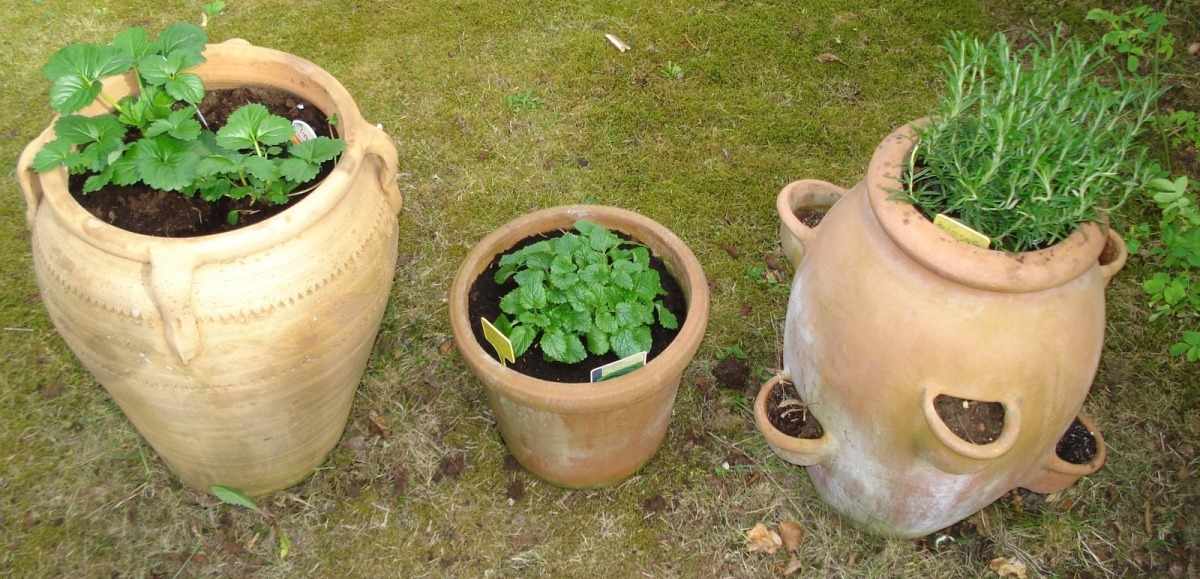Introduction to growing herbs organically in the backyard
Herbs are easy to grow with a little sunshine, soil that drains well, some watering, and a little fertilizer or compost. Herbs can be grown in pots; though, the plants always prefer to be in the ground where they can spread out. Whether you want to grow an organic herb garden as a hobby or to save money or just for healthier eating, there are plenty of herbs that grow in your backyard, or even in your windowsill. In this article we also discuss below topics;
- How do I start an organic herb garden
- Tips for growing organic herb plants
- How to grow organic herbs indoors
- What herbs are the easiest to grow
A step by step guide to growing herbs organically in your backyard
Growing your herb garden in your home or backyard is a good project that also makes food taste better. Whatever organic herbs you include in an indoor herb garden, make sure to plant them in light, well-drained organic potting soil and let the soil dry out slightly before watering. You can find that herbs are grown indoors in natural light rather than under grow lights are a bit leggier than herbs grown outdoors, but they will still taste great and add color, flavor, and interest to favorite recipes.
The right place for growing herbs organically in the home garden
The requirement for growing Herbs is growing them in the proper location. Most prefer full sun as long as regular summer temperatures don’t rise above 32°C. If you have warm summers, then consider planting in an area that gets morning sun and afternoon shade in the summertime, or a place that receives filtered light. Check the area several times during the day to make sure that there are at least 4 hours of sun.
Start an organic herb garden
Apart from convenience, one of the best things about growing your Organic herbs is that you know exactly what goes into producing it. Growing organic herbs in your backyard are as easy as using only organic certified materials and avoiding non-certified ones. While you’re in control, there are no surprise chemicals, and being in control of herbs is so easy. This means well-drained neutral soil, preferably with some organic matter, such as compost or manure. Herbs can be grown from seed or propagated from cuttings, divisions, and layering. Tarragon, chives, and mint plants grow well from division. Lavender, sage, lemon balm, and rosemary plants can all be grown from cuttings. Layering is the process of starting roots from a branch that is still actively growing on the mother plant, works well for herbs with flexible stems, such as Thyme, Lemon balm, Sage, Rosemary, Bay, and Winter savory.
All other herb plants can be sown from seed. If your area experiences hard winters, start seeds indoors in late winter and transplant them outside when the weather warms. Anise, cilantro, fennel, and dill must be sown directly in the ground in the spring.
Finding organic herb plants for herb garden planter
To plant an organic herb container garden, it’s important to take some considerations to avoid chemicals that are not permitted in organic gardening. The first step is to find plants that have not been treated with chemical fertilizers, pesticides, and fungicides. Garden centers offer organically-grown herb plants specifically for home herb gardeners. Ask a knowledgeable staff member where the plants are sourced and how the plants are grown before buying them. Many perennial herb plants grow quite large and can be divided up into many smaller plants. Ask some gardeners if they can give you a division of their herb plants or if they know of a local plant sale where organic plants are offered by local gardeners. Herbs are grown for extracting essential oils and as a raw material for making herbal products. Most of the herbs are having high medicinal values and used while making certain food varieties to add flavor to it.
Some of the organically grown herbs in India are Basil, Cilantro (Coriander), Parsley, Thyme, Oregano, Sage, Bay (Bay leaf), Rosemary, Chives, Mint, Tarragon, and Lemon Balm.
Soil for growing herbs organically in the backyard
Most herb plants prefer well-drained and friable soil to grow. This helps the plants to receive the nutrients, water, and develop a strong root system. Before farming, the soil should be prepared by analyzing the pH level and amount of organic required for proper growing conditions. There is a method known as sterilization, to eliminate any soil-derived diseases, pests, and for the control of weeds. Crop rotation is a very important factor to diminish any possibility of common crop diseases. Organic treatments have to be done on the soil to keep fertility. The use of compost promotes the breakdown of the natural breakdown of organic matter to replace some nutrients that are taken from the soil by previous plants. Herbs require a pH level ranging from 6.3 to 6.8.
Once you’ve found organically-grown herb plants, the next step is to find organic herb garden soil. The limited space and lack of connection to an established soil ecosystem make it preferable to select an herb garden soil mix specifically designed for container gardening rather than outdoor garden soil.
Herb garden soil mixes will drain well, hold nutrients, and provide aeration to roots. By using a high-quality potting soil, you’ll avoid bringing in any soil-borne diseases or other potential accidental garden soil contamination. Beware that many brands of potting soil sold in large and small retailers alike have chemical fertilizers and other ingredients that are not approved for use in organic gardening. Fortunately, there are easy ways to check and make sure the soil you’re buying is indeed safe for an organic herb garden.
How to grow herbs from seeds organically in the backyard
Growing herbs from seed is a bit trickier and more time-intensive than buying starter plants, but it is completely possible. Many seed companies offer organic seed, available locally or available to order online. Organic herb seeds are available online and in most garden centers. You can try your local seed swap. If you do choose to grow herbs from seed, use these seed-starting instructions to grow your seeds into healthy seedlings. Nurseries carry organic herb seedlings, many gardeners prefer to start their garden with organic herb seeds, which have been grown without synthetic pesticides or fertilizers. Planting herb seeds is cheaper than buying transplants. If you’ll be growing herbs in a container, sow the seeds right in a pot filled with organic seed-starting soil. For an in-ground herb garden, you have two choices they are sow seeds in the ground once all danger of frost has passed in the spring. Or get a jumpstart on spring by starting seeds in small pots or growing trays in the backyard, and then transplant seedlings into the ground once your Zone’s frost date has passed. Be aware, though, that some popular herb plants, including dill, fennel, and chervil, don’t transplant well so should be sown where you want them to mature.
In case if you miss this: Growing Microgreens in Aquaponics.

If you plant directly in the ground, and cover the seeds lightly with soil and keep them moist until they germinate. Most popular herbs are annuals and sprout within 1 to 2 weeks. You can get herb germination charts with growing specifics online, in gardening books, or from the local extension office. Once herbs are about 2 inches tall, it’s time to transplant them to their permanent homes. If you planted them in a container, thin out the seedlings so the largest, healthiest plants remain.
Gardening tips for growing herbs organically in the backyard
Selecting herbs – Select plants that will thrive indoors and that you are likely to use or appreciate aesthetically.
Containers – Herbs grown in the backyard can enhance the ambiance of any space. Find containers that reflect the style of their surroundings.
Planting – Medium Soil brought in from the garden can bring with it disease or pests. A few inches of the organically rated potting mix is all herb plants need to flourish.
Natural light – Most do well with at least 6 to 8 hours of regular sunlight. Find locations with ample natural light to keep herb plants happy.
Water – Herbs like humidity and regular watering, but too much water can be destructive and containers with adequate drainage are recommended.
Picking – Harvesting herbs regularly is good for plants and will encourage plant heartiness and growth.
Organic herbs planting

Choose healthy herb plants that are labeled as organic herbs, or choose seeds for each herb you want to grow. Plant established plants in organic soil in individual pots for each type of herb. Then, this allows you to move one particular herb to a different area to change the lighting or air circulation requirements without disturbing the others.
Sprinkle seeds on top of organic soil in a pot and then press the seeds slightly into the soil, and sprinkle a light additional layer of organic soil on them. Water the soil thoroughly, and put the pot in a sunny windowsill.
Growing herbs organically in pots
Growing organic herbs in pots is an alternative to planting them outdoors. Even if you have space in your garden, you could want to consider growing your herbs in containers. You can bring them inside to overwinter, and you can keep them in the backyard. Most herbs need at least 6 hours of direct sunlight, so make sure you have adequate space near a south-facing window for wintertime. If you don’t, invest in some grow lights to keep the plants happy. Make sure not to over-fertilize herbs don’t need fertilizer, and it makes the leaves more plentiful, it makes the scented oils more diffuse. In containers, where fertilizer can build up, just skip it.
You may also check this:

Although herb plants perform well in the ground and are wonderful additions to your vegetable or flower garden, many gardeners prefer growing herbs in containers. It is easy to control soil conditions in a container, and you’ll be able to tailor the water to your plants’ needs. Just be sure to select varieties with the same growing requirements when planting herbs together. When planning the mix of herbs for a container garden, and there are nearly as many choices as there are types of herbs.
Other ideas for growing herbs organically in the backyard include;
- Attach pots to a vertical lattice and fill them with small herb plants for a vertical herb garden.
- Fill hanging baskets with trailing herbs like rosemary and creeping thyme.
- Use half a whiskey barrel to grow favorite cooking herbs.
- Think of herbs as decorative accents and combine them in attractive groupings as you would flowers.
- Set herb containers inside a large basket for a rustic look.
- Create a tower of herbs by stacking terra-cotta pots of decreasing size and fill the space around each pot with a different herb.
- Punch drainage holes in the bottom of an old child’s wagon, fill it with organic potting soil, and plant favorite organic herbs.
Fertilizers for growing herbs organically in the home garden
While most herbs need little fertilizer, you do need to pay closer attention to container-grown plants. Because the amount of soil around the herb plant is limited to the size of the container, it dries out faster and requires more nutrients than the soil in your garden. For herbs, all that is needed is a good all-natural organic fertilizer which can be mixed in with the potting mix before planting. If your plants lose their color or look a little peeked during the growing season, and apply a good liquid fish and kelp fertilizer at half the recommended strength every few weeks. Apply fertilizers sparingly to herbs. Heavy applications will produce large herb plants, but the essential oils that produce their flavor and aroma will be greatly reduced.
Water requirement for growing herbs organically
When it comes to watering, container gardens dry out faster and need more attention than backyard gardens. How much you water will depend on many factors including;
- Type of soil or potting mix used
- Amount of exposure to the sun, rainfall, and wind
- Average temperature
- Size of your plant
If temperatures are warm, a container may need water once or twice a day. Watch closely and water when the potting mix appears dry and pale or has shrunk away from the sides of the pot. And, poke your finger in the soil. If it feels moist, it’s all right. If it feels dry, start watering.
Caring for potted organic herbs

Herb plants are low maintenance, even in pots. Make sure to keep fleshy-leaved herbs like parsley and basil well-watered, but avoid overwatering drought-tolerant aromatic herb plants with finer leaves such as rosemary or thyme. Water your herb plants with an organic liquid fertilizer every few weeks during the growing season to keep them producing plenty of fresh new shoots. Picking regularly will encourage herbs to produce lots of more new leaves.
Organic pest control in herb plants
There are natural, organic ways to deal with pest and disease problems in the backyard garden.
Tips to slow and even halt garden pests and diseases without the use of synthetic, non-organic pest and disease controls;
- Better weed management can reduce the risk of attack from some pests. And using herbal pesticides are an effective method to kill all sorts of pests and insects. Though, herbal pest control methods need laborious preparation, unlike chemical pesticides which are harsh to other living beings.
- Select the best site and soil for the plants you are growing. Then, this will reduce plant stress and susceptibility to disease and pests.
- Choose resistant herb plant species or varieties. Check seed packets and plant labels for pests and disease.
- Most insect pests can be controlled with relatively nontoxic sprays and a forceful spray of water from the garden hose is one of the easiest ways to dislodge pests. Some insecticidal soaps, horticultural oils, and insecticides made from plant extracts such as neem, and pyrethrum is natural alternatives to synthetic pesticides.
- Prune or pinch to remove damaged and diseased plant leaves and branches. Pruning will increase light and air circulation in the garden. Remove dead and diseased herb plants from the garden immediately.
In case if you are interested in Herbal Store Franchise in India.